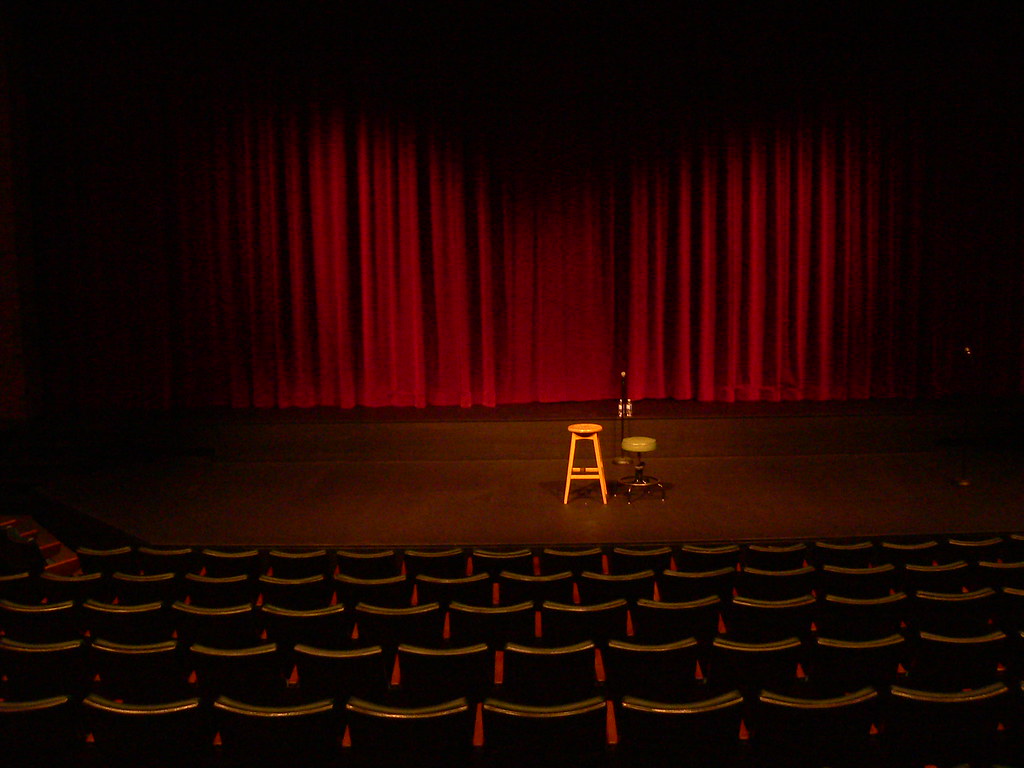For the fifth anniversary of Queer History Month, McGill invited a very special keynote speaker: Toronto-based Teiya Kasahara, a trans and nonbinary opera singer. Their talk, “(Trans)itioning Inward: Making Art with Intention,” discussed their career path and how they approach the ethics of theatre and opera as a transgender artist. Tanna Schulich Hall’s stage seemed perfect for this occasion; the music faculty was eager to host Kasahara, and the hall was able to accommodate a sizable crowd without people being packed shoulder-to-shoulder.
After a few brief speeches from university and city authorities—including Serge Sasseville, city counsellor for the Peter-McGill district, who is openly gay and fights for the rights of his 2SLGBTQIA+ constituents—Kasahara took the stage.
Kasahara opened with a powerful question: “To whom do I hold myself accountable? To my colleagues, to the theatre, to the producer sending me the e-transfer? To my wife, my cats, my family? To you? To me? To the land? Artists are taught not to ask this, and just to focus on what will progress our careers. But progress is not a straight line. I’m not even sure if progress is a goal, if we look at the supposed history of human progress, and how the world is currently on fire.”
For Kasahara, the definition of an ethical artist is quite simple: an ethical artist works “through intention, not letting others’ rules keep you from the path you are meant to tread. An artist understands their own imprint in relation to the world, to the people around them, to their community, and to the land.”
As Kasahara spoke, I could tell that they had thought deeply about the topics they explored throughout their life and artistic work. You could feel the wisdom in their voice, reflected through the good advice they provided. Their experience as a queer, trans artist learning to re-navigate their creative environment was surely valuable for anyone in the audience, regardless of their profession.
Despite the seriousness of the topic, Kasahara did not shy away from humour. Once they had explained their conception of an ethical artist, they began telling their own story and quickly established a rapport with the audience. Their humorous retelling of their first foray into opera as a fifteen-year-old visiting a singing summer camp garnered many laughs from the audience. Kasahara, a “self-professed tomboy” and “lazy overachiever,” decided to go overboard for their final presentation, and learn the revenge aria from Mozart’s The Magic Flute. This would lead them to their first role: the Queen of the Night in the same opera. Soon, they and the Queen became “an item, operatically speaking.”
However, their dream eventually turned sour. As they were relentlessly ferried from black box theatre to black box theatre across Europe, kept in the wings only to be swept out for a total of 8 minutes onstage, they began to grow tired. Among the “pyrotechnics and pearls,” they realized they were not happy anymore. As they put it: “I was so caught up in being good enough for everyone, I essentially lost sight of why I started doing this: because I loved operatic music and the way my body felt when performing it. I kept asking myself the question ‘am I enough,’ and the answer was never yes. Had opera betrayed me, or was I betraying opera?” This line really resonated with me.
It is easy to slip into the self-destructive loop of questioning your worth and holding yourself up to arbitrarily high standards.
However, as Kasahara insightfully pointed out, this is not a productive question to ask. It leads to instability and to the need for outside validation, which are not conducive to building one’s self-identity. Regardless of one’s pursuits, in order to live as a self-actualized person, one needs to let go of the need to be enough for others. This issue is particularly poignant for queer people and people of colour. By focusing on their personal journey and struggles with self-worth rather than on social struggles, Kasahara connected emotionally with the audience.
Kasahara needed a change. Unfortunately, their auditions for other parts went poorly. Kasahara painfully described how they constantly fretted over their queerness and gender presentation. They kept long hair despite feeling uncomfortable, and felt the need to “soften their look” in order to audition. As a queer person of colour, they often felt self-doubt, wondering if they were rejected because they “weren’t feminine enough,” or because they “weren’t white enough.”
Crucially, a step back from their art was needed in order for them to feel happy again. While taking time away from singing, they were able to explore writing. As is often the case for creatives, exploring a new medium without any rigid expectations or pressure to perform was incredibly freeing.
Instead of taking direction, Kasahara was able to fashion their own show, built around their identity, and to strengthen their relationships with the important people in their life.
During this time, they also began to “acknowledge the complex truths” about themselves. While they did not have the language to do so for many years, they were finally able to explore their identity as a transgender person. Around this time, they also began to return to performing; not as a traditional opera singer, but in theatre. Through theatre workshops, they were able to reimagine the canon that had previously felt so constraining.
Their show The Queen in Me re-imagines their first role and love, the Queen of the Night. But in this opera, the Queen of the Night refuses to come onstage, and fights for space for herself and the actor playing her. Their goal was to “explore the many ways in which race, gender, and sexuality are policed in the opera industry,” while “[reclaiming] space for the multitudes of women, trans, and non-binary individuals excluded from the stage.” After nominations for five Dora Mavor Moore Awards, it is safe to say that the Toronto theatre scene had taken notice. The world premiere of the show took place in June 2022 at the Canadian Opera Company, and it is only a matter of time before others will take notice as well.
Kasahara’s work as an ethical artist has continued, through their co-founding of the Amplified Opera initiative, their position as the Canadian Opera Company’s Disruptor-in-Residence, and their work with Debi Wong to create River Island, an opera inspired by the life of Yoshiko Kawashima, a military leader with fascinating cultural and gender fluidity.
As for their recipe for being an ethical artist, their method is simple: “I try, I fail, I forget. Then I remember, and I try again.” According to Kasahara, their intention to “continuously work to show up for myself and others” matters far more than chasing perfection. Although they were hesitant at first to advocate for themselves, they realized that it was “unethical to not work as my full self when so many out there [struggling in the same situation]. If we all start pushing, then the issues with opera will start to come undone.”
Kasahara echoed artists who have come before them, stating: “Art making is an act of liberation, and is community-based. I’ve been held by others, and as an artist, I have a responsibility to do the same, and hold people through art and actions.”
When they were asked how they managed to navigate the opera sphere, which is often classist, racist, and sexist, they emphasized that it can be a struggle, and that it is important to find a support system: “[Creating art] is a lesson in trust. Trust your instincts, and trust your colleagues who support you. If you can’t find a place where you are, then look for a space elsewhere. I turned to theatre in 2016 to see if I could apply my skills to adjacent industries, and now, 6 years later, I’m starting to see results. There might be times where you’re playing in the living room of your friend after grad school, and that’s okay. You will find your people in the end.”
During the Q&A session, Kasahara reiterated the power of changing the canon. “All of these shows are hundreds of years old. They’re in the public domain. We could use them to talk about the complexities of queer love, there is so much possibility. I appreciate that we have the starting point of the canon and amazing shows, but there is so much potential to be creative and crack open some of the inherent classism of opera.”
The talk was truly fantastic, and the Q&A session was amazing as well. Several of the audience members went into personal details, and while I won’t share those here, it was clear that several of them connected with Kasahara’s struggles, and were pleased with their insightful answers to questions. “(Trans)itioning Inward” was truly a space for queer wisdom-sharing and community love, and I am happy that I chose to go. I have a feeling that Kasahara’s story and advice will definitely play a role in my life somewhere down the line.








